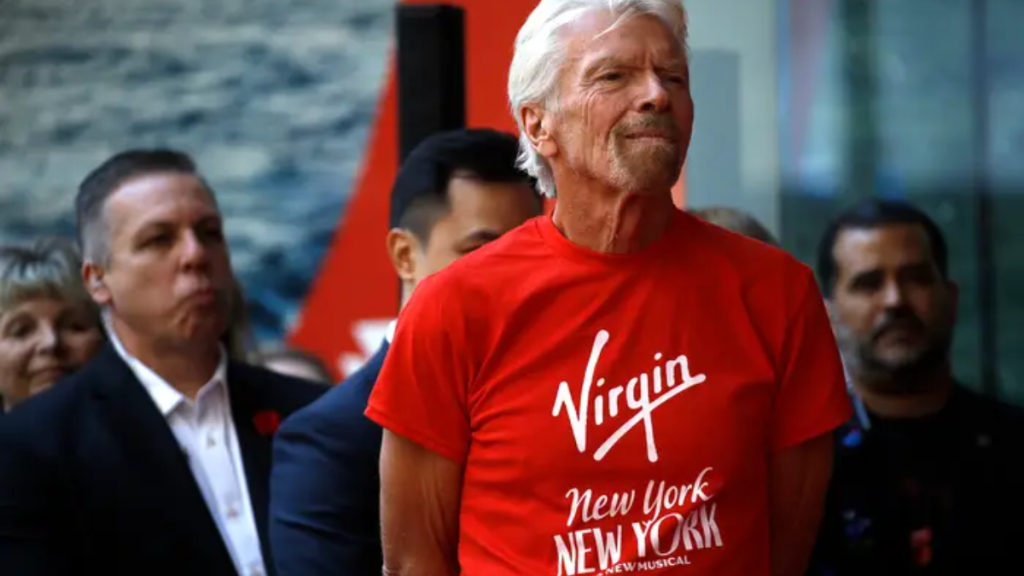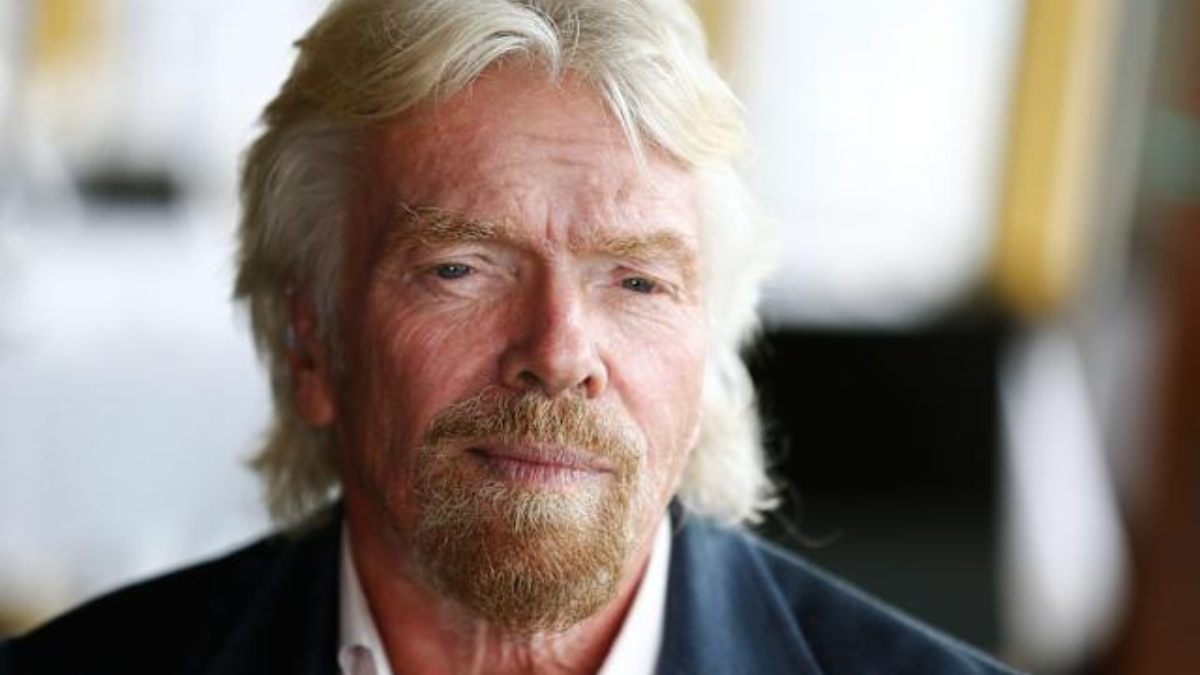Billionaire entrepreneur and Virgin Group founder Sir Richard Branson has voiced strong criticism of Donald Trump’s tariff policies, labeling them as “erratic, unpredictable, and dangerous to global business.”
Speaking to reporters during a business forum earlier this month, Branson warned that Trump’s approach to trade risks long-term damage to both U.S. businesses and international economic stability.
Branson, a vocal advocate for free trade and sustainable global growth, described Trump’s aggressive use of tariffs as “economic whiplash,” highlighting how sudden changes in trade rules without consultation or warning have sent shockwaves across industries.
He emphasized that while leaders have the right to renegotiate trade terms, the lack of transparency and predictability in Trump’s decisions undermines the very foundation of global commerce.
“Businesses require stability to invest and grow,” Branson said. “These tariff wars may be politically effective in the short term, but they’re economically reckless.”
Global Businesses React to U.S. Tariff Uncertainty
Branson’s remarks reflect the growing frustration among global CEOs who are struggling to plan in the face of rapidly changing U.S. trade policy. Trump’s tariffs have impacted billions of dollars in goods, affecting industries ranging from agriculture and automotive to electronics and aviation.
For multinational companies like Virgin Group, the ripple effects of U.S.-imposed tariffs have been disruptive.
Virgin Atlantic, for instance, has seen reduced demand for transatlantic travel amid economic uncertainty, while Virgin’s U.S.-based investments are now facing increased operating costs due to retaliatory tariffs imposed by trade partners like China, Canada, and the European Union.
Major American corporations have also voiced concern. Tech firms like Apple and Tesla, along with agricultural giants such as Archer Daniels Midland and Cargill, have warned of shrinking margins and rising prices.
Consumer brands including PepsiCo and Procter & Gamble have already announced price hikes on goods due to increased costs from tariffs on raw materials like aluminum and steel.
A report from CNBC highlights that over 60% of U.S. manufacturers surveyed believe Trump’s trade war has negatively affected their profitability in the last year.
Tariff Volatility Hurting Investor Confidence
Richard Branson also warned that erratic policy decisions, especially those involving tariffs, are having a chilling effect on investor confidence. Markets thrive on predictability, and the Trump administration’s on-again, off-again tariff announcements have contributed to market volatility.
The Dow Jones and S&P 500 experienced steep drops following sudden tariff escalations in 2024 and early 2025.
According to financial analysts, Trump’s decisions have created a new “geopolitical risk premium” on U.S. assets, leading many international investors to shift their portfolios toward more stable regions, such as the EU and Southeast Asia.
Branson noted that such uncertainty could deter long-term investment in the U.S., particularly in manufacturing and technology sectors. “It’s very difficult for CEOs to plan three, five, or ten years ahead when trade conditions change overnight,” he said.

Economic Nationalism vs. Globalization: Branson’s Broader Concerns
Branson also used the opportunity to critique the broader wave of economic nationalism championed by Trump and some of his international allies.
While the rhetoric of “America First” may appeal to certain voters, Branson argues that the long-term consequences could isolate the U.S. from beneficial trade networks and partnerships.
“We live in an interconnected world,” he said. “Trying to wall off the U.S. economy may feel good politically, but it harms American consumers and workers more than anyone else.”
He pointed out that protectionism often backfires, leading to higher consumer prices, reduced competitiveness, and job losses in export-driven industries. Branson urged policymakers to find balanced trade agreements that protect national interests without damaging the global economy.
What’s Next for U.S. Trade Policy?
As the 2024-2025 political season heats up, trade remains a central issue in the debate over economic policy. Trump has doubled down on his protectionist platform, promising voters that he will continue to “restore American manufacturing” by placing tariffs on foreign goods and renegotiating global trade deals.
But critics like Richard Branson believe this strategy will ultimately do more harm than good. He is calling for a more consistent, cooperative approach to trade policy that includes long-term thinking and coordination with allies.
“It’s not about being for or against America,” Branson concluded. “It’s about ensuring America and the world economy can thrive together. Erratic trade wars only hurt the people politicians claim to represent.”
Conclusion: A Business Leader’s Warning
Richard Branson’s public critique of Donald Trump’s tariff strategy adds to the chorus of voices from the business world calling for a change in direction. As economic uncertainty persists, his message is clear: short-term political wins should not come at the expense of long-term global prosperity.
With markets on edge and trade partners retaliating, the world will be watching closely to see whether U.S. trade policy stabilizes—or continues down a path of economic disruption.
For further insights on the economic impact of tariffs, visit Forbes’ analysis on Trump’s trade policy.
Disclaimer – Our team has carefully fact-checked this article to make sure it’s accurate and free from any misinformation. We’re dedicated to keeping our content honest and reliable for our readers.
